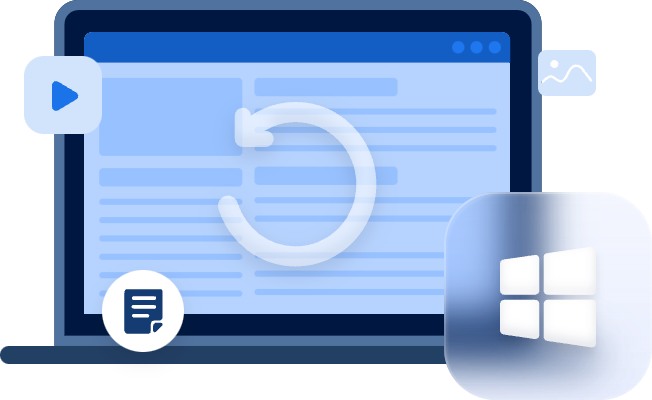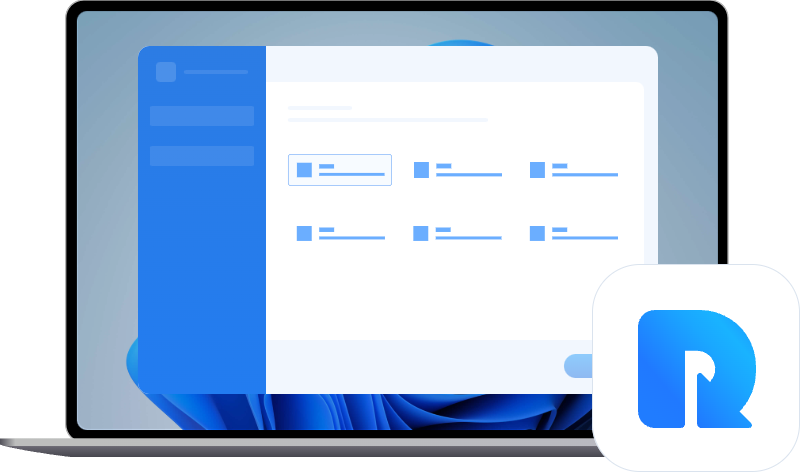For Windows & iPhone | How to Recover Family Photos?
Seeking ways to recover family photos? This article helps you recover family photos on Windows and iPhone via different methods. Besides, there’re practical data loss prevention measures.
Is it possible to recover family photos?
Do you have countless family photos scattered across your electronic devices? Perhaps hundreds or even thousands? Regardless of the quantity, the loss of even a single family photo can be incredibly heartbreaking.
Hey, folks! I recently discovered that some of my family photos got deleted, and I’m desperately trying to get them back. Have you ever succeeded in recovering old deleted photos before? Any suggestions will be appreciated.
Please don’t worry because there exists a possibility to recover deleted/missing family photos from storage devices, supporting various digital image file formats such as JPEG, GIF, PNG, TIFF, BMP, MPO, etc.
Part 1. How to recover permanently deleted family photos on Windows?
Since deletion is the most common data loss scenario, so where do permanently deleted photos go on Windows?
In brief, these permanently deleted family photos might be still on your computer hard drives if they haven’t been overwritten by newly added pictures. Because your Windows operating system only removes the corresponding file location of your unwanted family photos instead of wiping them totally.
When it comes to problems regarding how to recover old deleted photos, powerful data recovery software is feasible.
1. Recover permanently deleted family photos via photo recovery software
For a higher photo recovery rate, please avoid saving new images to your Windows PC after deletion. Besides, the sooner you begin photo recovery via MyRecover, the better chances you’ll have.
Because MyRecover is good at recovering deleted/lost images (JPG, JPEG, PNG, GIF, BMP, MPO, TIFF, etc.) from computer drives and other local drives.
Photo Recovery Software for Windows:
- All-inclusive: Handle data loss scenarios such as deletion, disk formatting, system crashes, or virus attacks.
- High-efficiency: Recover about 50 types of images, Microsoft Word, Excel, PPT, WPS files, folders, compressed files, videos, audio, songs, and websites from HDDs, USB sticks, SD cards, etc.
- Advanced scanning method: MyRecover runs Quick Scan & Deep Scan automatically to search all the recoverable files. Specify the filename, saved path, date, or size to filter your needed files.
- Convenience: Retain the original filename, path, and format for the deleted files.
- Excellent compatibility: Support NTFS, FAT32, exFAT, and ReFS file systems and be compatible with Windows 11, 10, 8, 7, or Sever PC.
- Notes:✎...
- After photo recovery, you need to save your recovered family photos in a new path instead of the original location.
- MyRecover free plan offers a 500MB data recovery allowance, enabling the recovery of an unlimited number of files. If you only need to recover family photos within 500MB, you do not need to pay for it.
- To recover a large number of deleted/missing files from local hard drives, upgrading MyRecover is a better and more cost-effective choice.
Step 1. Launch MyRecover on your Windows > Hover the mouse over the drive saved deleted photos before, and click Scan.
Step 2. MyRecover will automatically run Quick and Deep Scan to scan your selected C drive and display all the recoverable files.
You can preview or filter your desired family photos according to Document Type, Name, Date, Path, etc.
- Name: Type the filenames of your desired files to narrow the search area.
- Date modified: Set the date (today, yesterday, last 7/30 days, etc.)
- Size: Filter the file size (<128KB, 128KB~1MB, 1MB~ 512MB, etc.)
Step 3. Go to the Deleted Files/Recycle Bin/Other Missing Files folder and select your wanted family photos. Then click “Recover x files” to recover family photos.
2. Recover permanently deleted family photos via PhotoRec
If you’re familiar with CMD, you can also try PhotoRec because this open-source file recovery software specializes in recovering photos from local hard drives such as HDD, SSD, CD-ROMs, memory cards, USB drives, etc.
Part 2. How to recover permanently deleted photos from iPhone without backups?
As you can see, a growing number of Apple users save their precious family photos on their iOS devices. But many users haven’t developed a good habit of making iCloud or iTunes backups.
So how to recover permanently deleted family photos from iPhone without backups? Similar to Windows data recovery, in this case, you can seek help from one of the best iOS data recovery software like MyRecover for iOS to recover family photos.
- ★Key features of MyRecover for iOS:
- With a bootable iOS device and another Windows computer, you’re ready to begin the iPhone permanently deleted photo recovery process at any time.
- Preview all the recoverable iPhone data and restore selected data to iPhone based on your needs.
- You don’t have to restore your iPhone from iCloud/iTunes backups and erase all the current data on your iPhone.
- Recover 10+ types of data: Photos, Videos, Contacts, Notes, Reminders, Calendars, Call History, Voice Memos, etc.
- Support iOS 15/16/17 and work with most types of iPhones like iPhone 13/14/15.
Give it a try, you’ll be reunited with your cherished family memories in no time!
Step 1. After running it, connect your iPhone to this computer.
Step 2. “Trust your Computer” on your iPhone and click the “Scan Now” button.
Step 3. Under the Photos tab, select your desired GIFs from all the recoverable photos and “Recover” them.
Related suggestions
Where do permanently deleted photos go? Is it possible to recover family photos from Windows or iOS devices? If you’re bothered by similar problems, please find answers in the corresponding part.
Meanwhile, there’re some practical data loss prevention measures for your reference.
- Please think twice before deletion.
- Cultivate a good habit of creating backups regularly using professional backup software because only regular backups are the best hedge against data loss.
- For Windows, you can give freeware AOMEI Backupper Standard a chance as this free Windows backup software provides more flexible backup options and simpler operation steps than Windows features.
- For iOS devices, you can use this free iOS backup and transfer tool-FoneTool to create full or partial backups. More conveniently, you’re permitted to transfer full/partial files across different devices.


